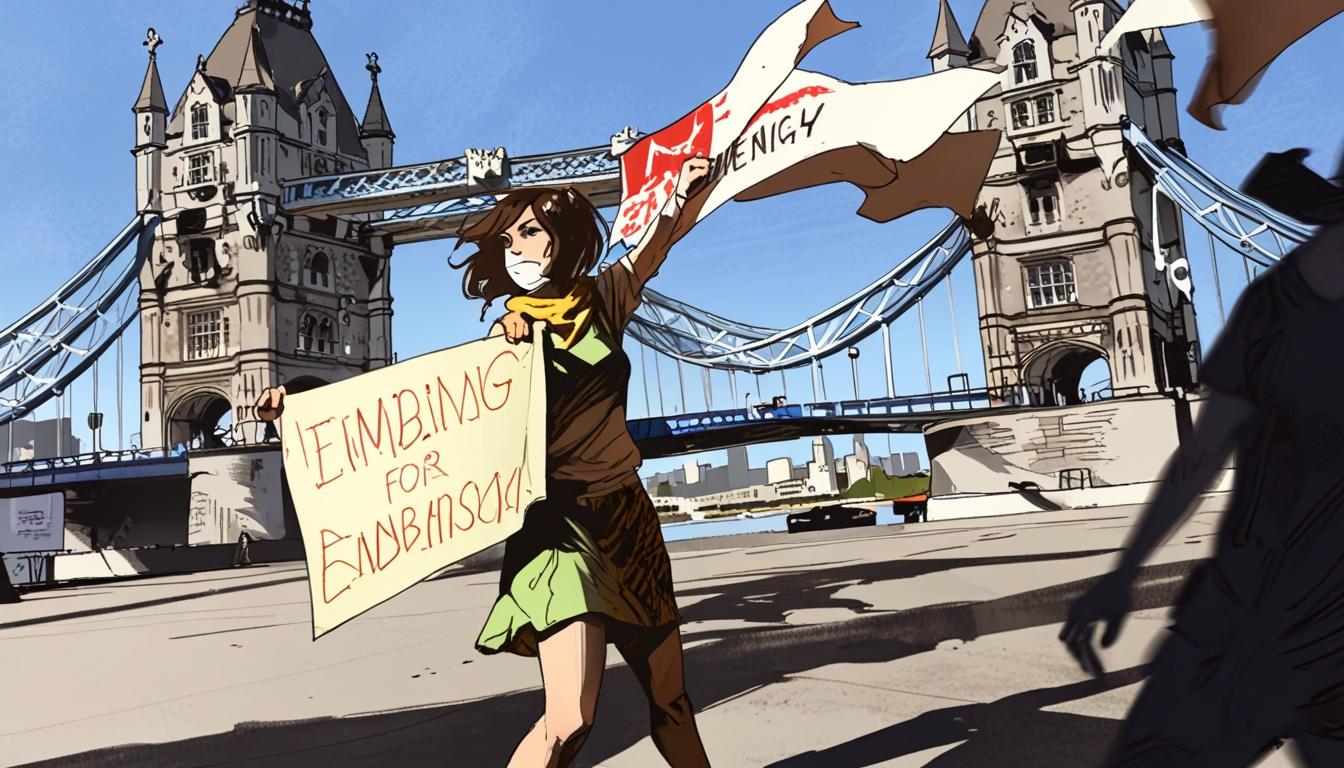A protest against China's planned 'mega-embassy' in London has escalated tensions between activists and the Chinese government, sparking allegations of intimidation and reprisals. The protest, which took place in February, drew around 3,000 participants who voiced opposition to the proposed 5.5-acre complex near Tower Bridge. Carmen Lau, a 30-year-old former politician who fled Hong Kong, was among the demonstrators, arguing that the embassy's establishment sends a troubling message that the UK is welcoming authoritarian regimes.
Lau's participation in the rally was met with swift consequences. She reported that within 48 hours, her elderly aunt and uncle in Hong Kong were arrested during early morning raids conducted by national security police. These family members were interrogated for six hours about Lau's connections to Hong Kong and were questioned about her political activities in the UK. Lau expressed her concerns, stating, "They wanted to know about financial relationships I had with others in Hong Kong, and were interested in my family tree – the other relatives I have in Hong Kong."
In a worrying development, leaflets were distributed in Lau's neighbourhood, allegedly from Hong Kong police, offering one million Hong Kong dollars (nearly £100,000) for information on Lau or for anyone capable of persuading her to enter the Chinese embassy located in Marylebone, central London.
Following the initial arrests, Lau claimed that her relatives' detentions paved the way for further harassment, as another aunt was arrested a week later. Lau believes that this pattern of intimidation is a tactic employed by the Chinese regime to coerce her into ceasing her "anti-Chinese" activities in the UK. "It’s their way of trying to shut me up," she said, attributing her experiences to a broader campaign against pro-democracy advocates.
Having previously served as a councillor in Hong Kong, Lau left the territory after being placed under surveillance for her pro-democracy stance. She described an environment where undercover police vehicles tracked her movements, and she was subject to harassment by security personnel and state media.
Lau's opposition is further reinforced by her apprehensions regarding specific features of the proposed embassy, particularly underground rooms whose uses have not been disclosed due to purported 'security reasons'. "These rooms could be used for interrogations and locking up people like us. They could be used to torture us," she commented, underlining her fears that the embassy could become a base for transnational repression.
Expressing concerns about her safety and that of her family back home, Lau revealed that the Metropolitan Police had advised her against attending public demonstrations due to the risk of violence and retaliation. As scrutiny over the embassy project continues, the implications of such a significant diplomatic presence from Beijing in London remain the subject of deep concern among activists and local communities.
Source: Noah Wire Services
